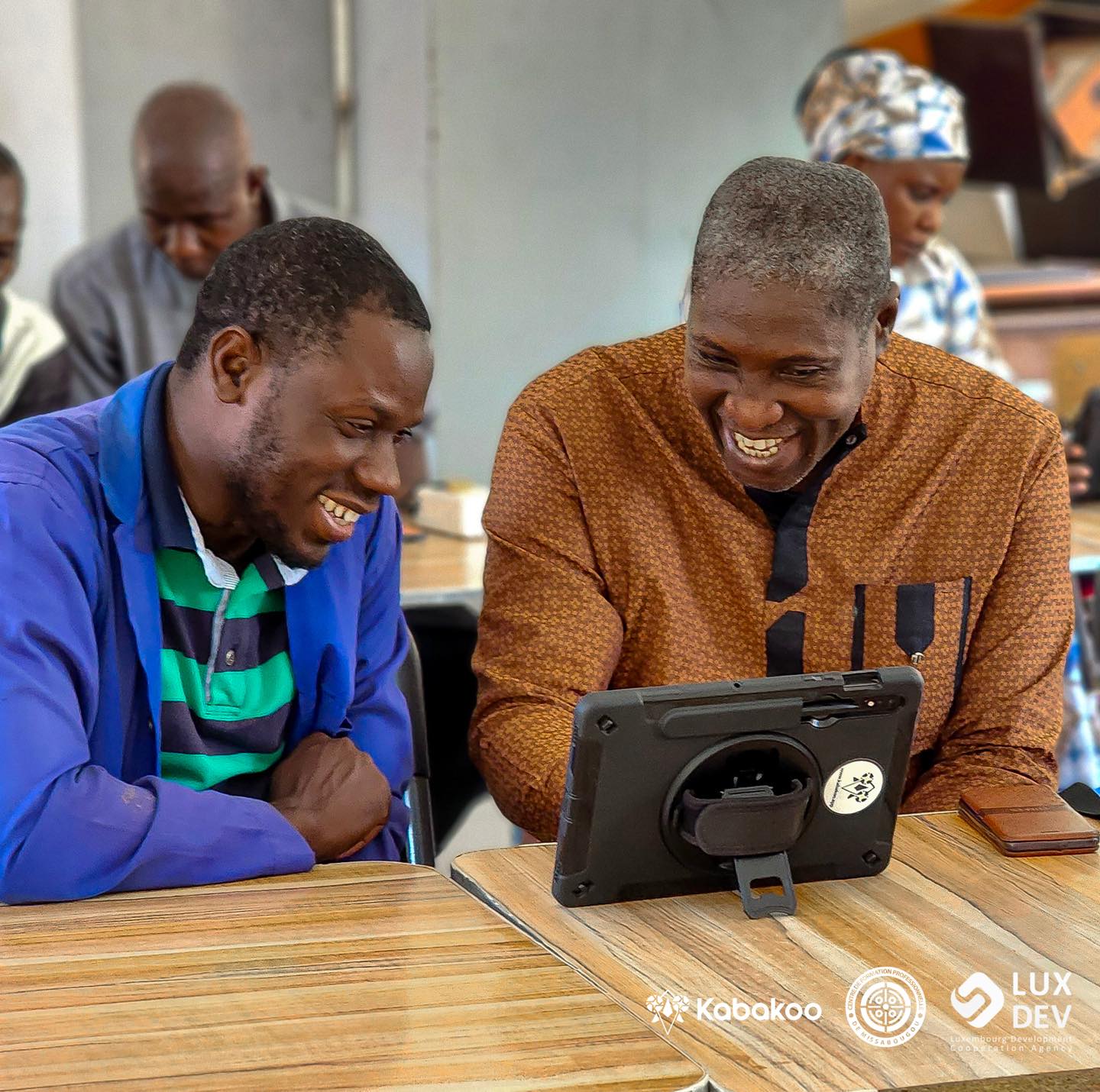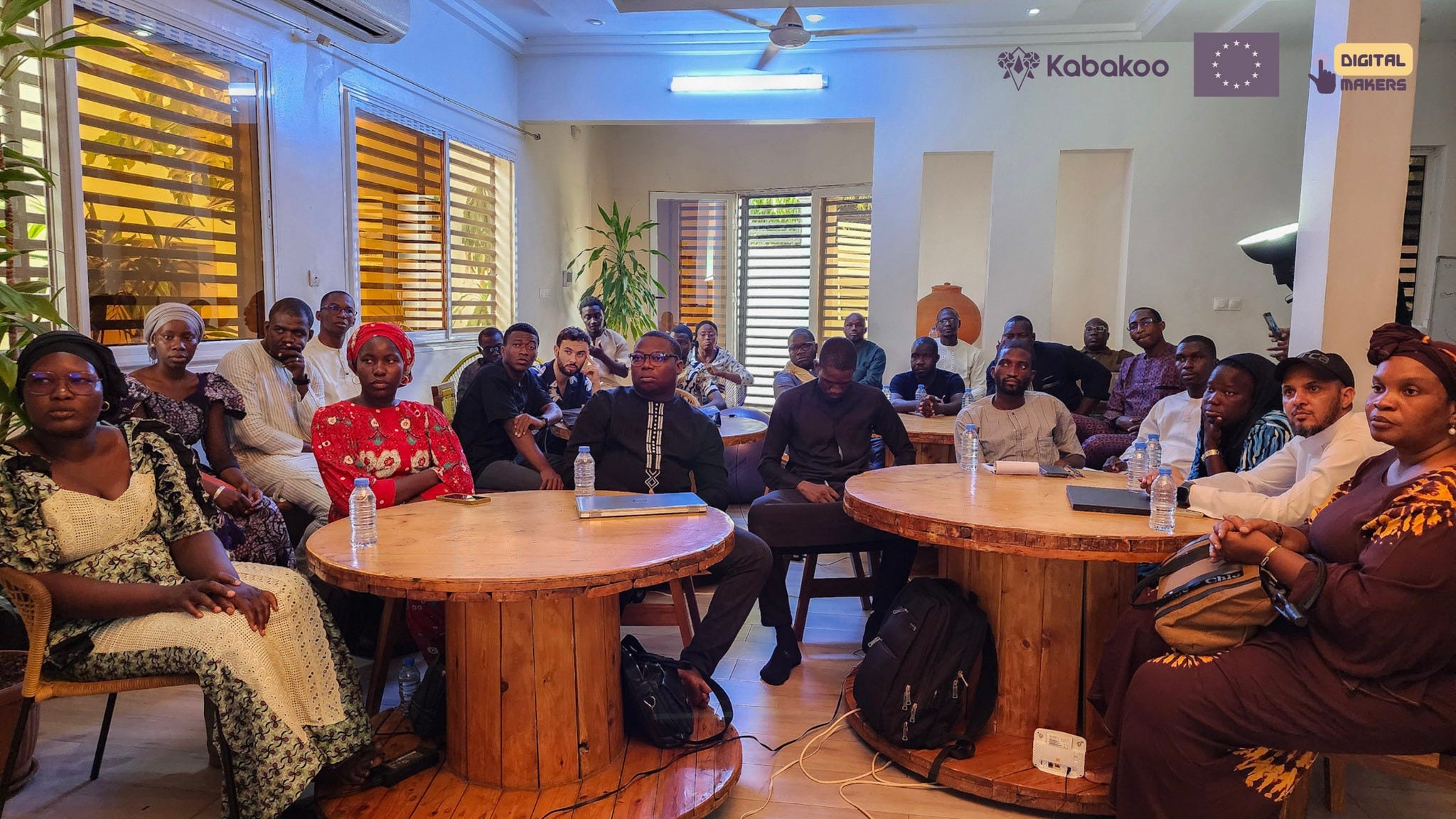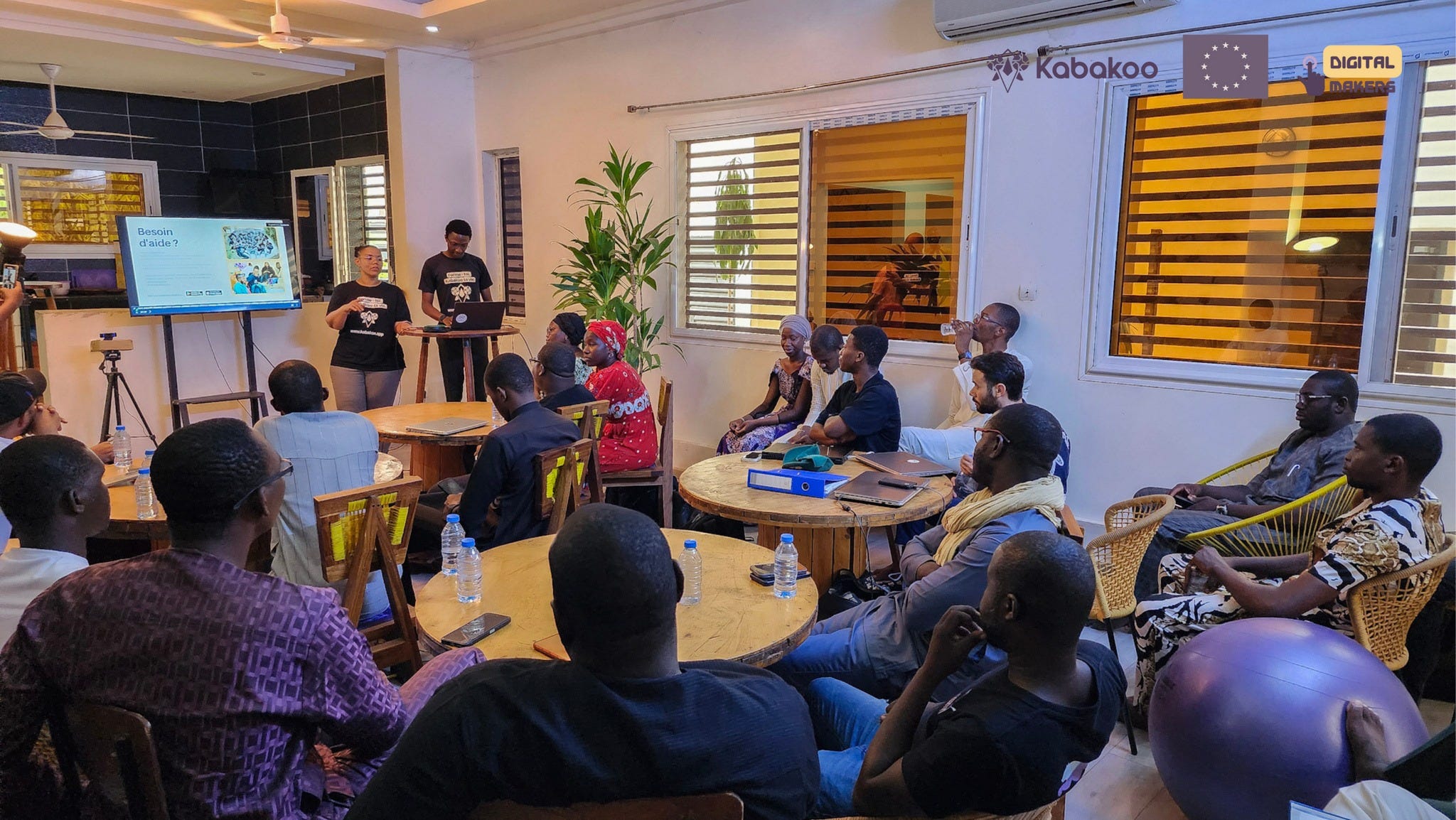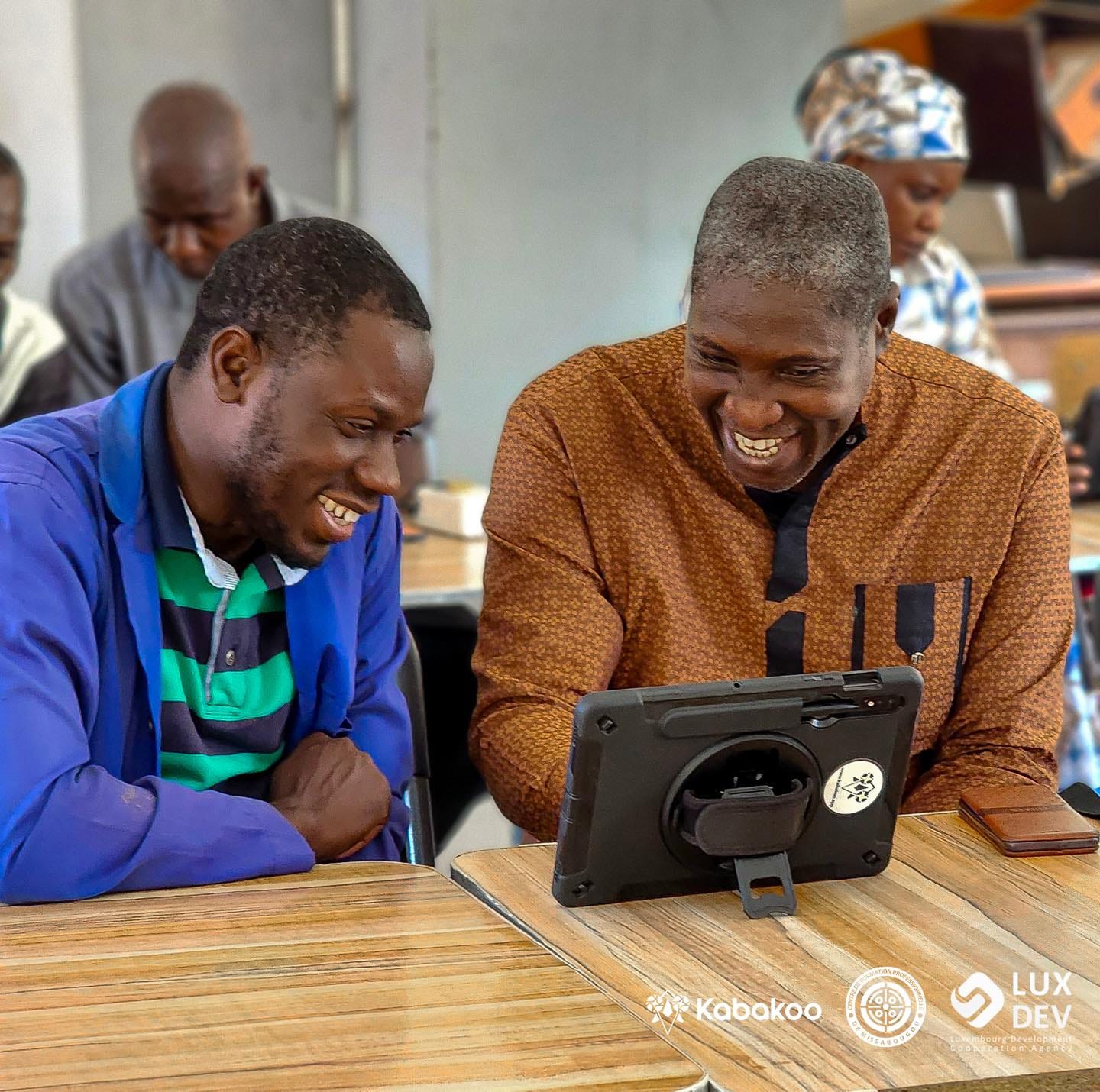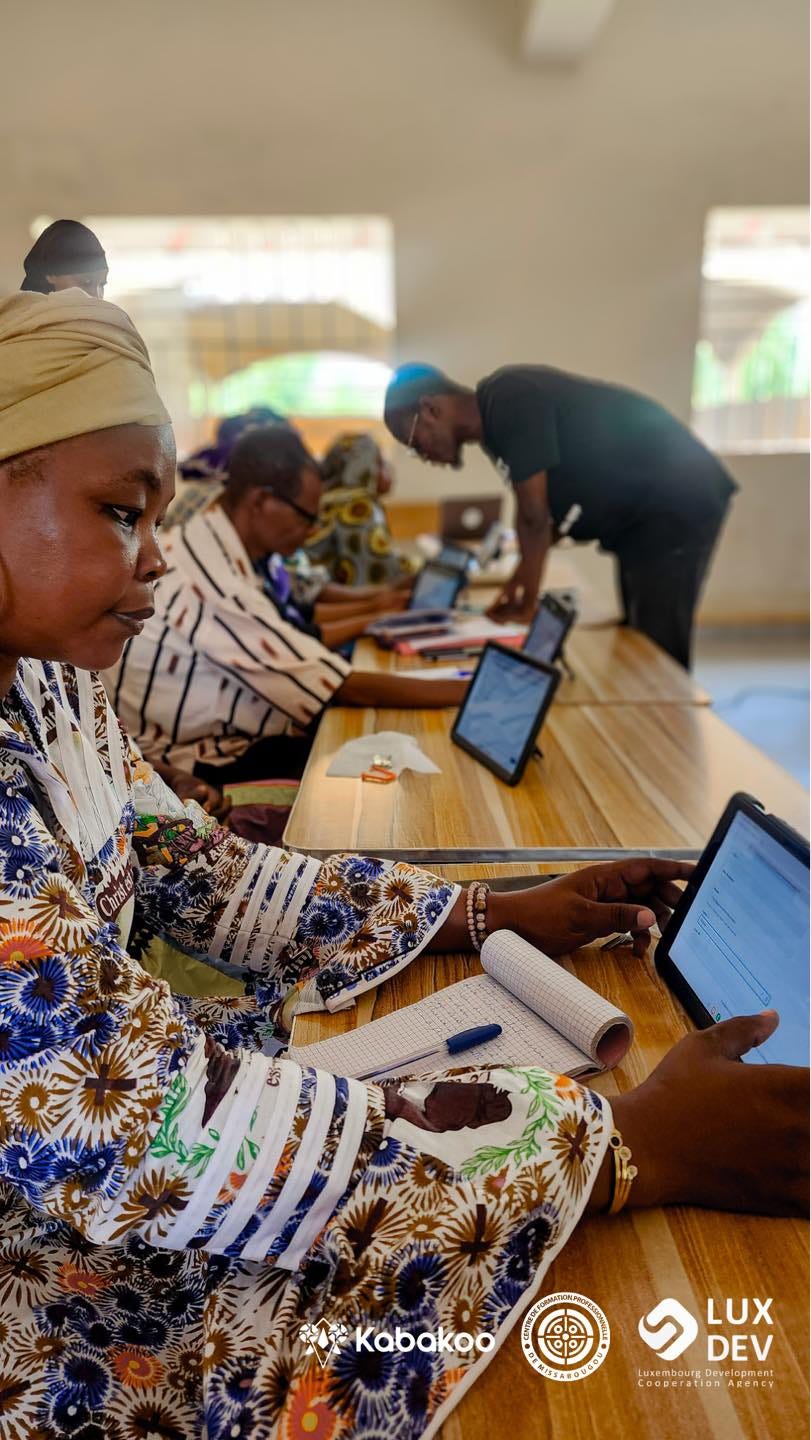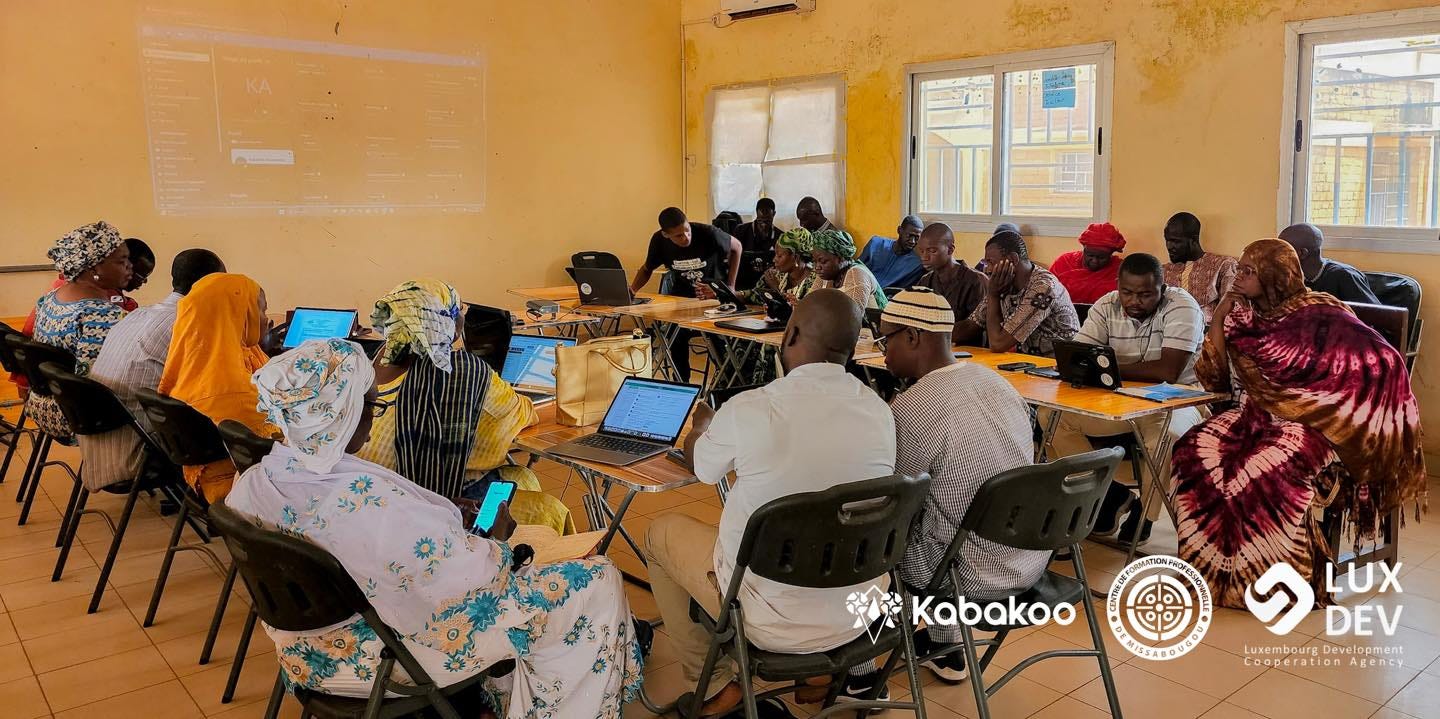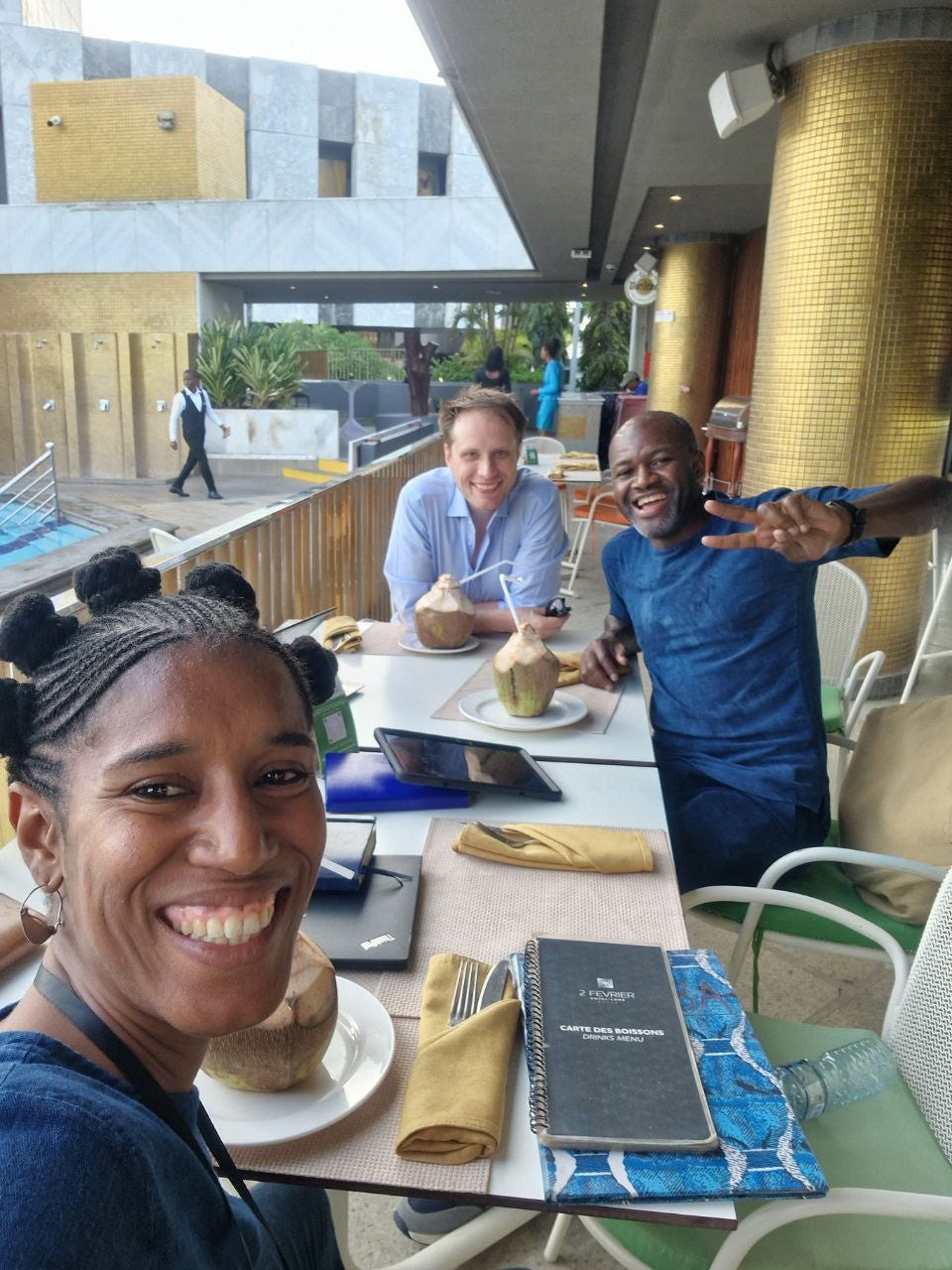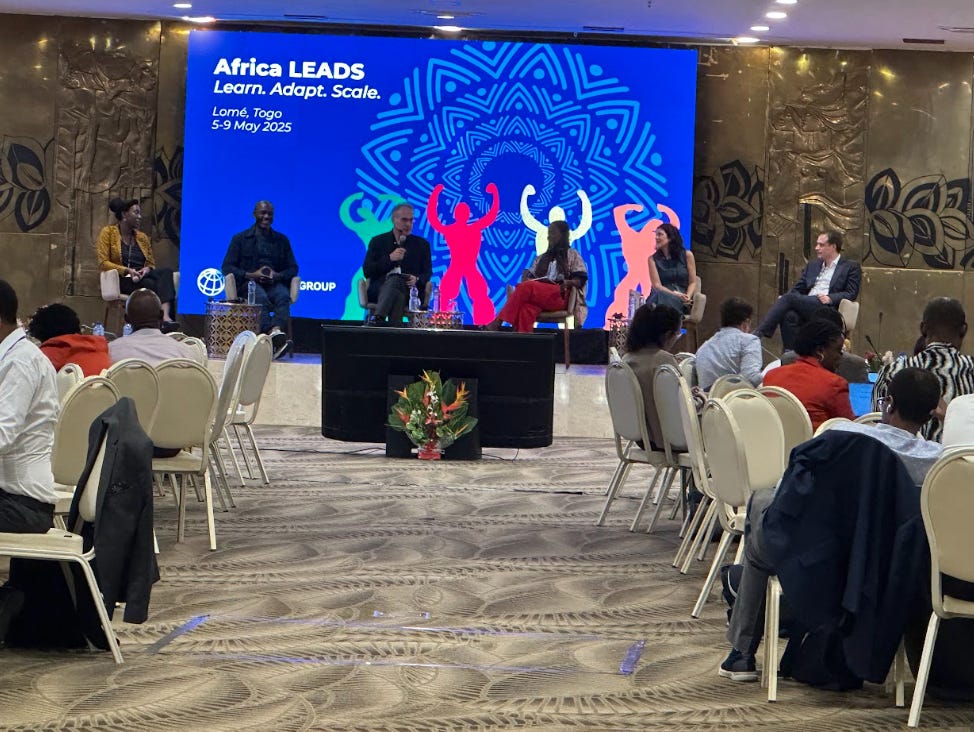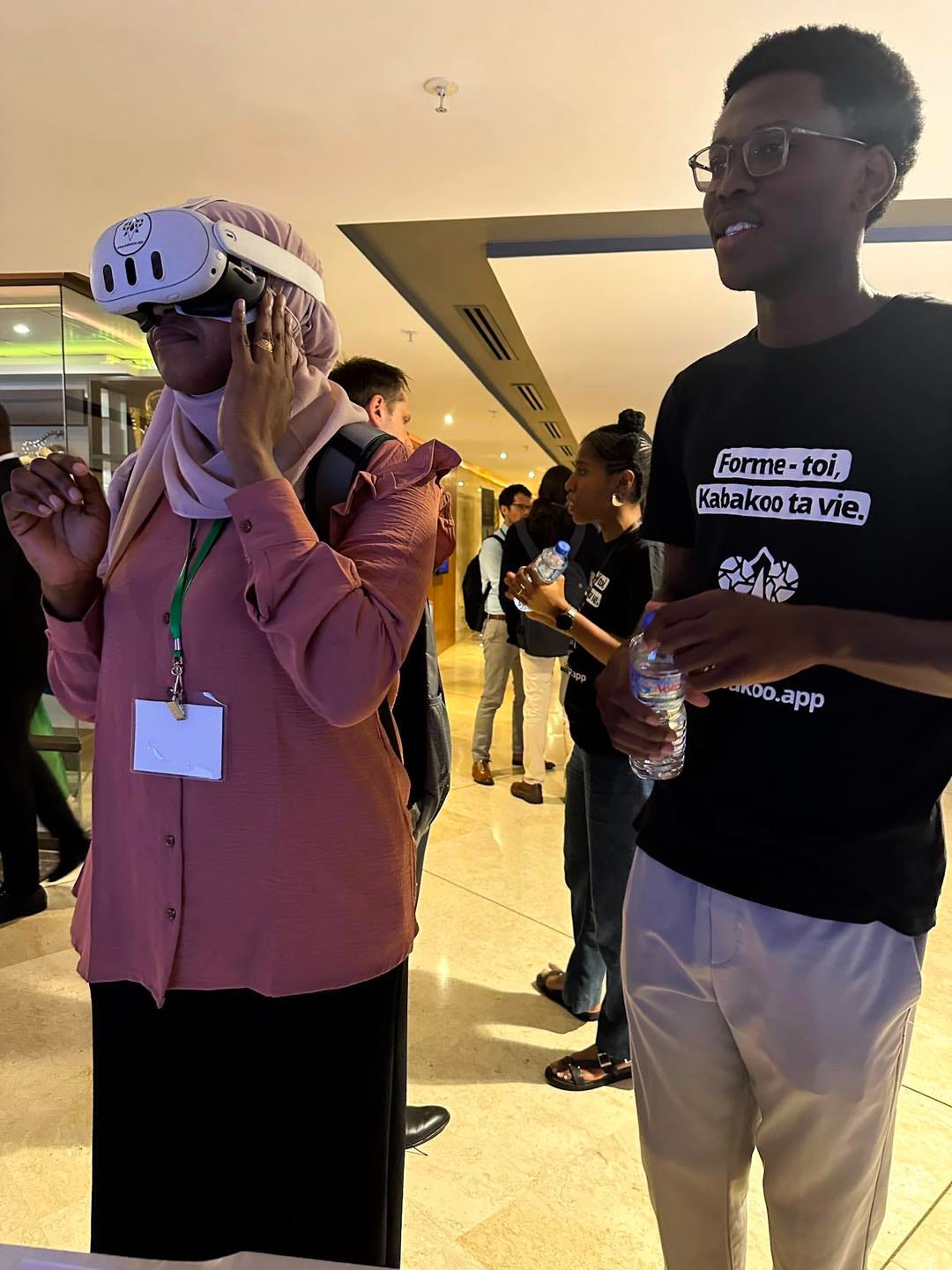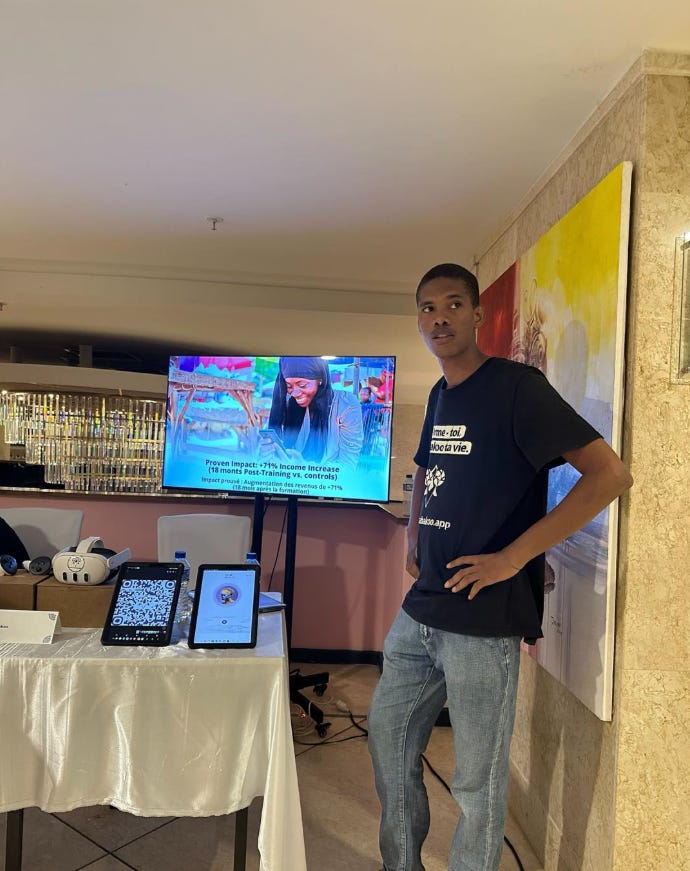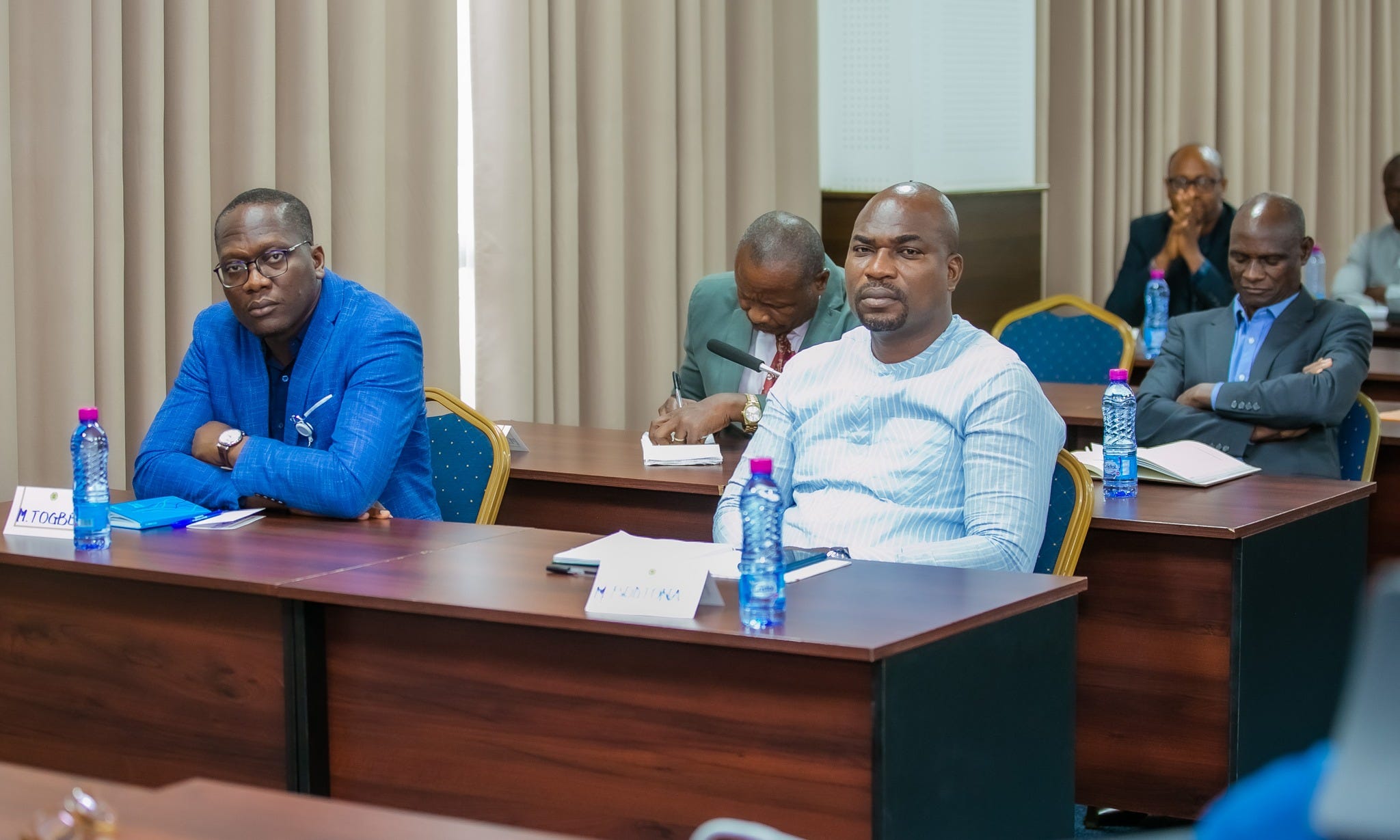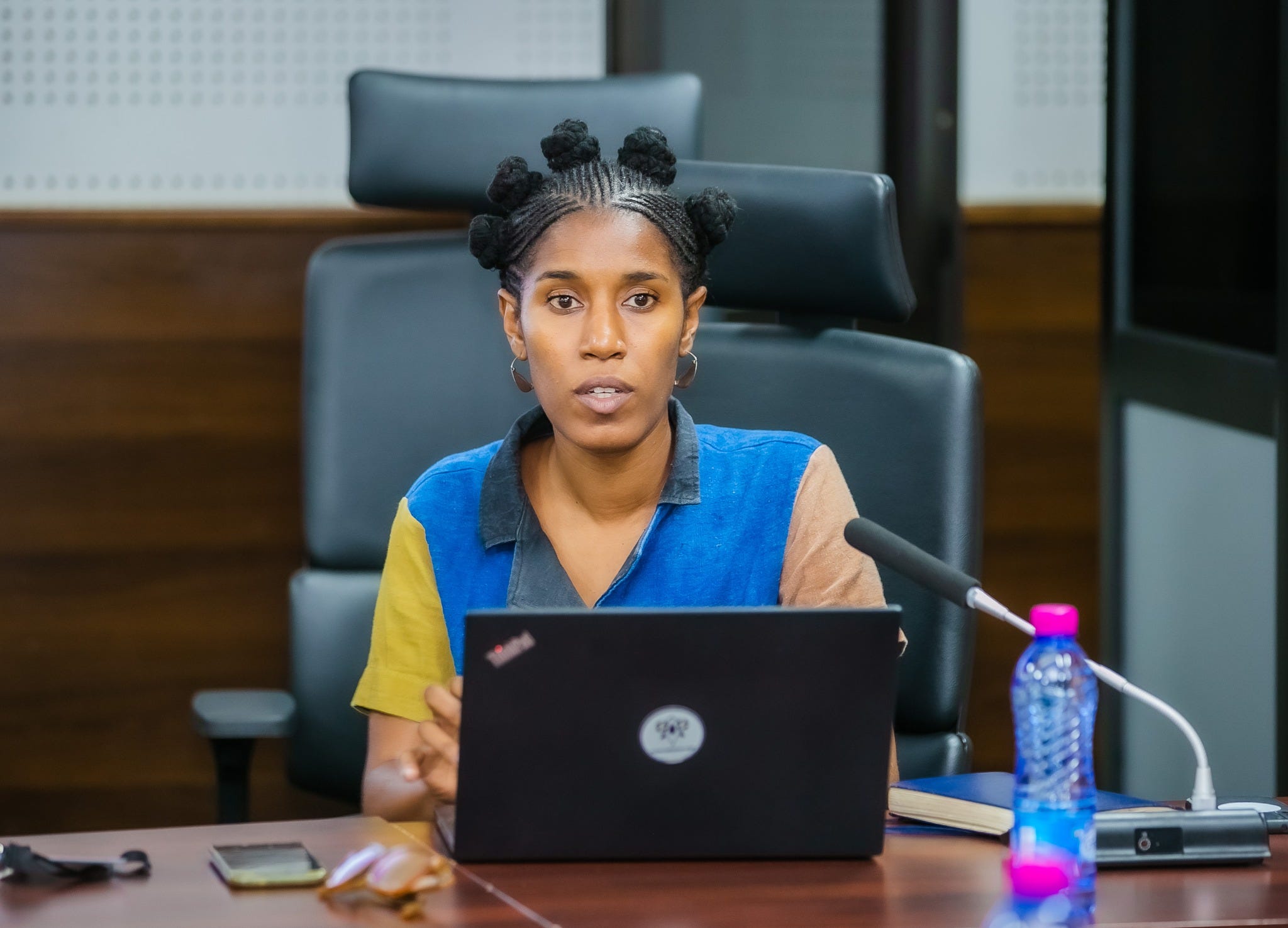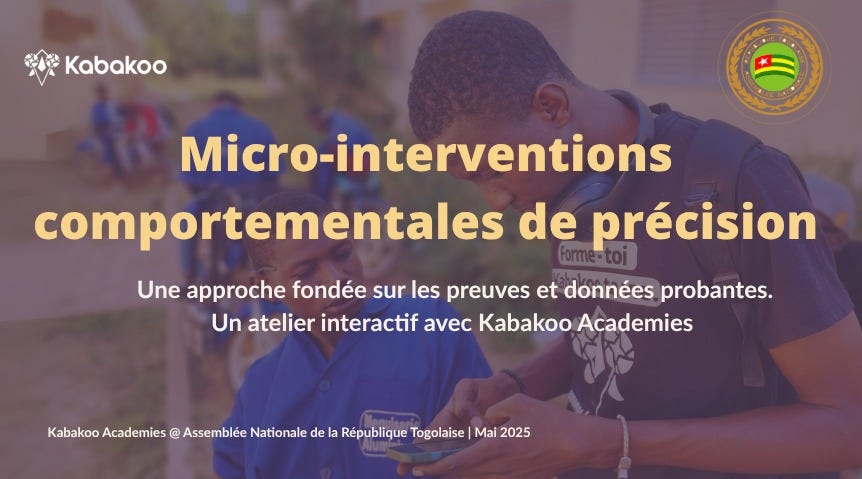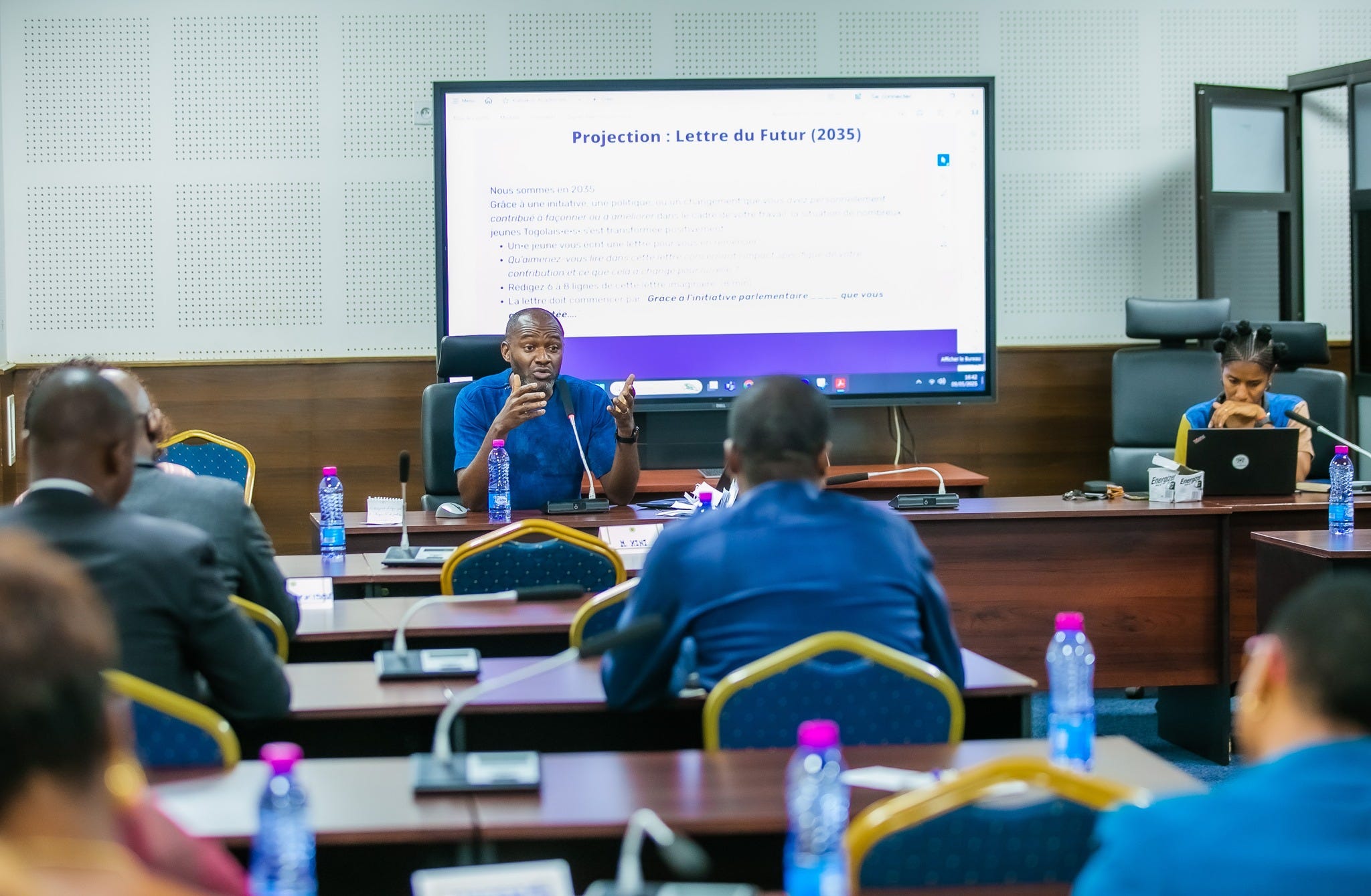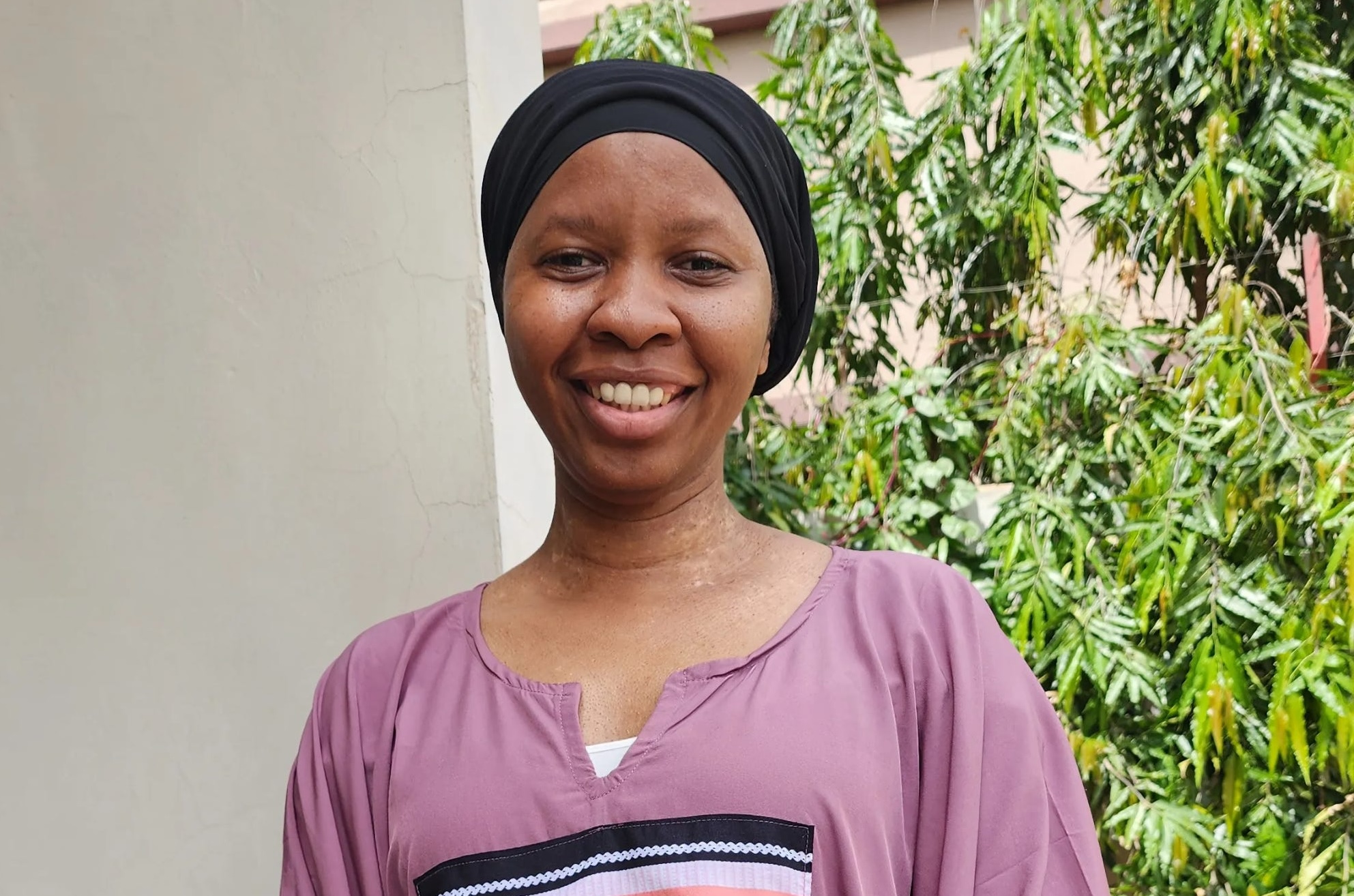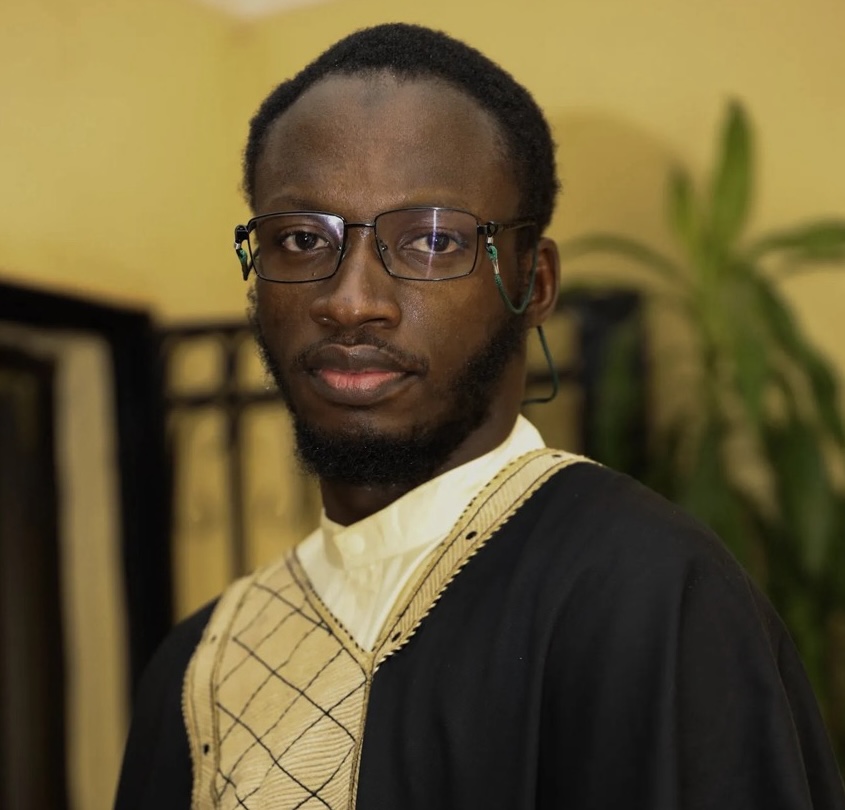It’s June. We are blessed with some rainy days after months of scorching Sahel heat. We hope you are finding some blessings in the Nature around you too.
🎶 Our song of the month is Faith by Art Blakey. Its polyrhythmic rhythms evoke a continuum from the joyful energy of a Balani Show at a Sunday wedding in Bamako to the parades of a Second Line at Congo Square in New Orleans. Maybe some influence from his 1948’s trip to West Africa? Maybe just in our heads (as he would later suggest)? Anyway…
What are we building?
Kabakoo designs and scales evidence-based pathways for West African youth, integrating AI, community, and cultural insights to foster the mindset and skills essential for building productive livelihoods and driving systemic change in informally dominated economies.
☀️ May 2025 Highlights
Here we go with some major updates about what we have been up to in the last month.
Incoming new Cohort : Upskilling youth from Civil Society with the EU
We’re excited to announce the upcoming launch of OSC Numérique, our next training cohort dedicated to equipping young members of Malian Civil Society Organizations (CSOs) with digital and entrepreneurial skills.
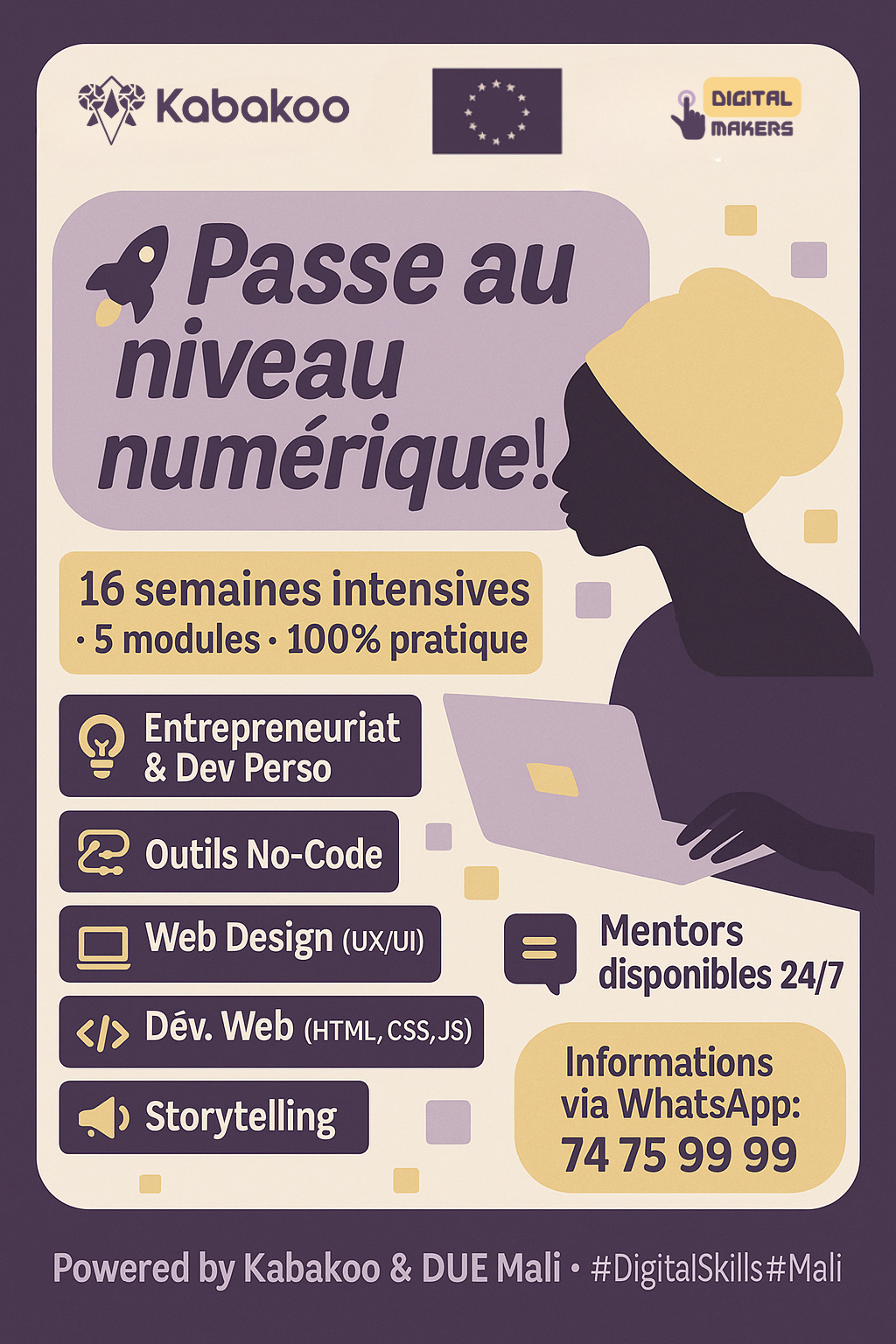
What’s special about this cohort?
This time, Kabakoo is focusing its efforts specifically on youth affiliated with CSOs. The goal is to upskill 600 youth in socioemotional, digital and entrepreneurial competencies. It’s a first for Kabakoo to partner with multiple grassroots organizations for our program. This approach to distribution allows us to leverage the reach of those organizations to connect with more youth.
Following a nationwide outreach effort targeting over 100 CSOs, we hosted an in-person information session for the first cohort. 22 organizations participated (among which 4 gender focused CSOs), and the response was overwhelmingly positive (95% of attendees believe the training will strengthen their members’ skills and 21 of 22 CSOs have committed to enrolling participants, with 293 prospective learners anticipated for the first cohort’s 150 spots!)
More on the impressions of the CSOs’ representatives and why they are excited about this program in the short video here.
Building a Bamanankan AI
Last month marked one year of our Bamanankan-speaking AI mentor. We are working toward improving the audio capabilities of our Bamanankan AI system to make it understand learners accurately and respond in a clearer/understandable “voice”, making information easier to comprehend and more engaging. This is crucial as more than 90% of a survey sample at a vocational training center in Bamako report preferring oral explanations in Bamanankan for learning (Bamanankan is a major West African language spoken by over 14 million people, mainly in Mali, Burkina Faso, Côte d’Ivoire, and Guinea).
Creating a language model for an under-resourced African language such as Bamanankan comes with unique challenges. Unlike global languages with massive datasets, we rely on intentional, human-centered data collection, voice recordings , and contextual nuances that don’t exist elsewhere. This makes every contributor’s voice a precious asset, and we wanted to honor their commitment to co-creating this resource. The conversation moved beyond technicalities and opened deeper reflections on ethics and local ownership.
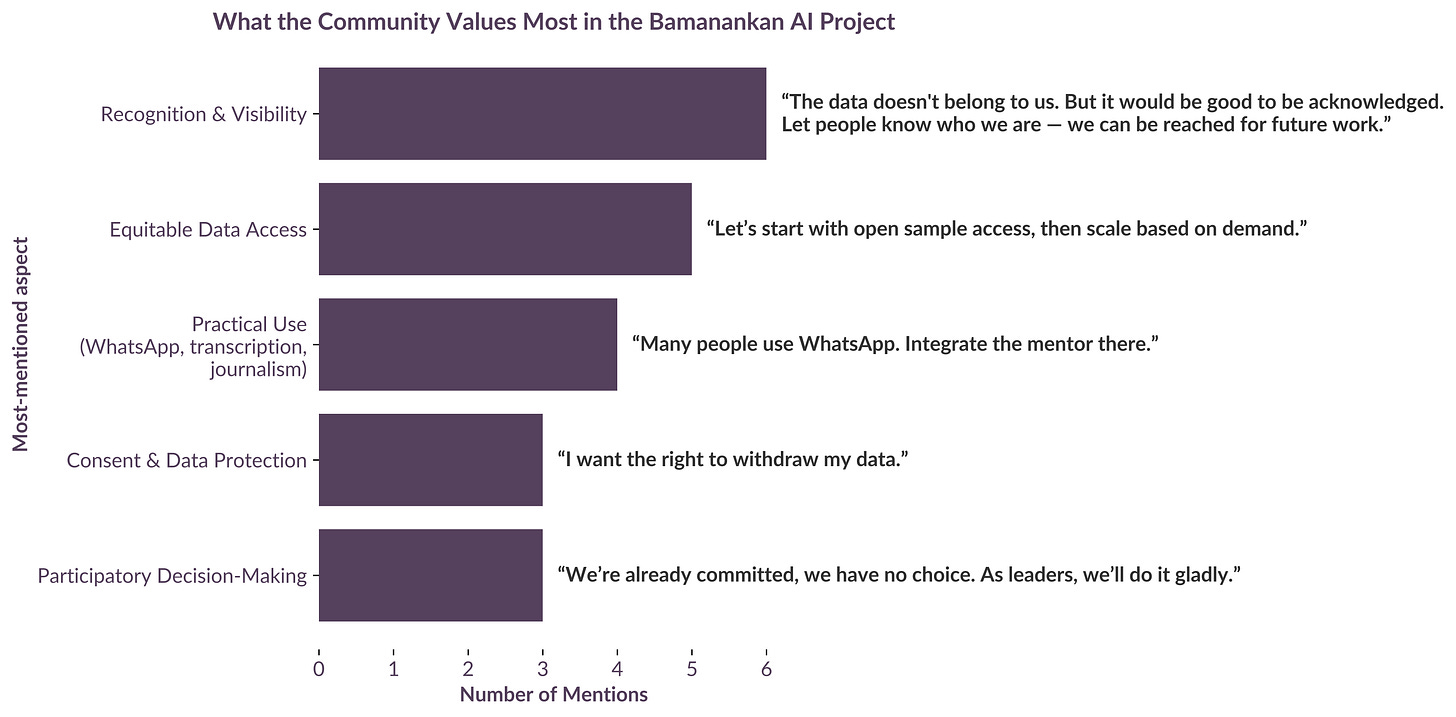
During the discussion, the participants strongly supported sharing the data, especially with local researchers and entrepreneurs. However, they emphasized the importance of a careful, step-by-step sharing, not to limit access, but to ensure the data meaningfully serves local communities, particularly those who contributed to its creation.
These community meetings are important steps in our journey to build a Bamanankan AI language model, while ensuring it is not only technically robust and useful, but also safe and culturally grounded.
You can officially call us “The TVET Digitizer Avengers”
Over the past 18 months, Kabakoo has been supporting the digital transformation of CFPM Missabougou, one of Mali’s most important vocational training centers. Today, we’re proud to share that the tools are in place, the teams from the vocational training center actively shaped their platform, and the CFPM is now equipped to manage and evolve its digital transformation from within.
What we achieved
This ambitious project led to tangible results, both in terms of infrastructure and internal capabilities:
- A tailor-made platform for learning and administration (including Internal procedures adapted to integrate digital workflows, from attendance tracking to course planning), now live and operational with apps deployed on AppStore and Play Store.
- Comprehensive learning materials in line with Mali’s national curriculum consisting of more than 300 interactive video lessons, 378 competency-based assessments, and 94 enhanced learning resources covering three main tracks: Poultry Farming, Market Gardening, and Agri-food Processing. All content is optimized for digital delivery and includes a digital skills module that can be adapted for other vocational training centers.
- A tailormade website developed to showcase programs and facilitate student enrollment
- A stronger digital culture within the center, laying the groundwork for long-term transformation.
What we learned digitizing TVET
The scope of a newsletter is certainly quite restricted for a real discussion on what we learned by digitizing a vocational training center. Still, here some quick learnings.
- Building from scratch can actually accelerate learning: The lack of accessible, up-to-date resources at the CFPM forced Kabakoo to develop entirely new learning materials from the ground up, while remaining aligned to the national curricula. Across West Africa, this situation of under-investment in TVET centers is highly likely the norm rather than the exception. As reported in a join study by the World Bank, ILO, and UNESCO, low- and middle-income countries spend less than 0.2 percent of GDP in TVET compared to 0.46 percent for high-income countries (despite its high potential!). Having to perform all the instructional design and learning engineering was a huge investment in time and effort but led to a new level of expertise in curriculum design tailored to real-world needs. This has made our approach to learning content creation more robust and replicable for future projects.
- Tech solutions must fit local realities: The digital platform was not simply “plug-and-play.” Success meant co-designing features with the actual users such as trainers, admins, and learners. We even included the neighbors of the center in some of our user research surveys! Their feedback and on-the-ground realities drove iterative improvements, for example, adapting attendance tracking methods to workflows trainers already knew rather than imposing entirely new ones.
- Teachers as partners, not obstacles: At the beginning of the project, some teachers clearly voiced out their fear that digital tools would replace them. Our team responded by holding open discussions and repeatedly demonstrating at multiple steps how the platform would help and support their daily work. By fostering trust and listening, we gradually turned (even some hard) skeptics into advocates of the new system. After initial reticence, several trainers began taking pride in creating a QR code for attendance verification and actively exploring the platform.
- Institutional buy-in is essential: Early in the project, it became clear that strong leadership and staff commitment at CFPM were vital. Whenever there was wavering support, the project slowed or encountered resistance. Moreover, the project timeline was tight and the conditions changed often (e.g. absence of up-to-date materials, delays in interactions with some stakeholders, evolving feedback). Clear role definitions, regular check-ins, and showing quick wins (like the online registration system and sample videos lessons with teachers from the center) helped cement broader institutional buy-in.
What’s next
The experience allowed our team to develop a template for TVET digitization that is now drawing attention from other institutions and partners for replication. We are proud to have developed a scalable digital solution that can be readily deployed across other TVET centers.
If you are interested in realizing the potential of vocational training for youth productivity and jobs across West Africa, or if you know people interested in it, reach out! We should talk.
Kabakoo at World Bank LEADS: Scaling impact through Highdigenous Innovation
We were honored to participate in the World Bank’s LEADS (Learn. Adapt. Scale.) initiative, held in Lomé from May 5–9 to explore how evidence-based solutions can shape large-scale development projects. It was an opportunity to share our model among high-level government representatives, World Bank’s researchers, and technical experts from the leading projects financed by the World Bank Group in West and Central Africa.
The World Bank LEADS initiative aims to embed high-quality data and behavioral science into the design and implementation of operations to accelerate regional priorities, including agriculture and adolescent girls’ education and skills. This aligns perfectly with Kabakoo’s core approach: an evidence-guided, iterative model of learning and scaling.
Additionally to our participation in a plenary panel, Kabakoo participated in the Solutions Marketplace, presenting our model and digital products to project teams, researchers, and policymakers.
During our visit in Togo, the Kabakoo founding team also had the opportunity to meet with H.E. Kodjo Adedze, President of the Togolese National Assembly and the country’s second-highest-ranking official. During the meeting, we shared Kabakoo’s “Highdigenous” vision, integrating AI (high-tech), community, and cultural (indigenous) insights to help youth build better lives through mindset shifts and skill development and our plans for expansion in Togo. Following the meeting, the Kabakoo team facilitated a workshop on the promises of precision behavioral interventions as capacity building for parliamentary staff.
We left Lomé reinvigorated, not just by the conversations and the plans, but by the growing recognition of the approach we have been championing since day one. Kabakoo has long stood at the forefront of innovation in upskilling: anticipating the transformative role of AI, pioneering data-driven learning, and promoting a model rooted in real-world impact and cultural insights.
Making Highdigenous Famous
Right after Lomé, our Co-Founder & CEO, Michèle Traoré, was on stage in Miami, at the Make Good Famous Summit 2025 by the Elevate Prize Foundation. As one of the Winners of this year’s Elevate Prize, Michèle joined multiple conversations on “A New Era of Impact”, sharing Kabakoo’s Highdigenous approach and showcasing stories of agency, creativity, and economic mobility. She shared how young people across West Africa are embracing learning, developing new mindsets, and actively shaping their own futures through Kabakoo’s upskilling programs.
Beyond the spotlight, this was also a personal milestone in Michèle’s journey, from a child playing barefoot in the sands from Timbuktu, to leading conversations with global changemakers. And as we say at Kabakoo, c’est toujours le début du commencement (in other words: we started from the bottom, and we are just emerging at the surface).
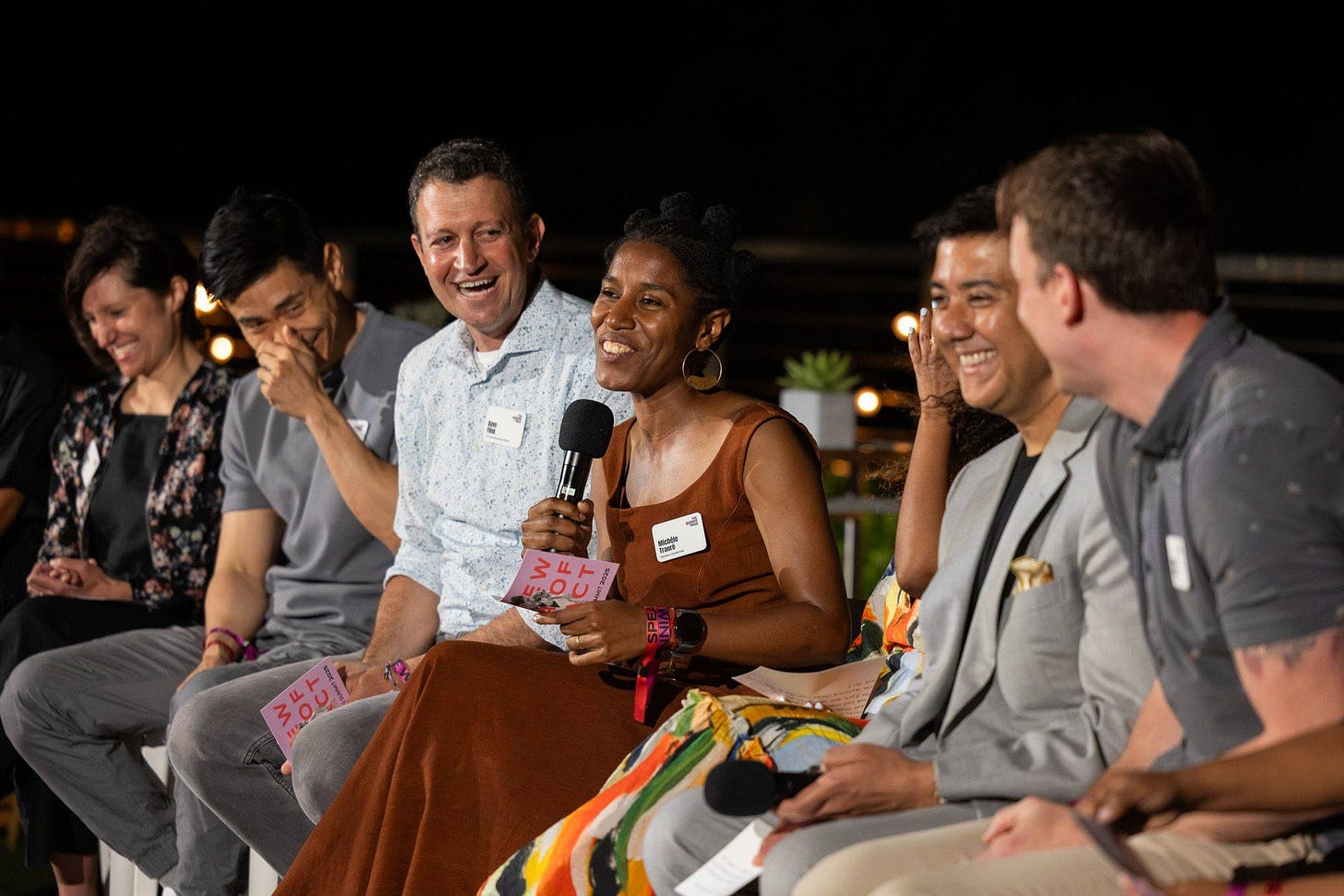
Kabakoo Faces
(With over 34,800 registered learners, each month we spotlight a member of our vibrant community.)

Meet Abdoulaye Azize F., a Kabakoo learner who has now established himself as an IT consultant.
Before joining Kabakoo, Abdoulaye saw himself as a young person “falling behind on [his] ambitions, frustrated by the uncertainty of the future.” That changed when he encountered Kabakoo’s learning community, which he described as “a space full of passionate youth, contagious energy, and a refreshing way of learning”.
Today, Azize navigates personal and professional challenges with intention and resilience. The mindset he built at Kabakoo continues to guide him as he explains in his own words : “I no longer see limits : if I want to achieve something, I learn how to do it.”
This is a typical example on how Kabakoo’s success lies beyond technical upskilling: it’s about reclaiming agency. Listen to Azize’s experience from himself here.
Thank you for reading to the end! 💜🧡
Michèle & Yanick

